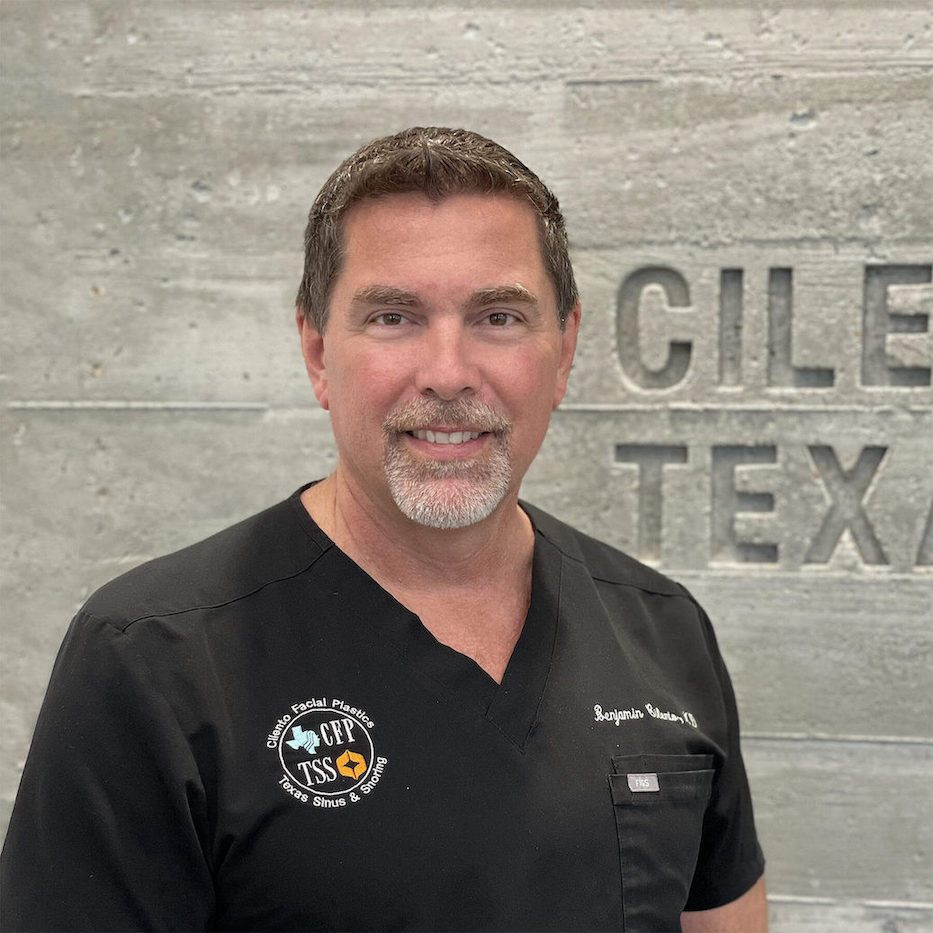Optimizing Allergy Management Post Nasal Obstruction Surgery: The Role of Testing, Treatment, and Immunotherapy
Introduction: Nasal obstruction surgery
I have been working to help people conquer snoring and sinus issues in Houston for the past 14 years. I spent 20 years in the military before that doing the same.
Stuffy nights are bad nights… everyone knows this. Nasal obstruction surgery represents a variety of procedures I perform aimed at addressing structural issues that hinder nasal airflow and breathing.
While surgical interventions can significantly improve nasal function and alleviate congestion, the presence of underlying allergies can complicate postoperative outcomes and impact symptom management.
It is imperative to recognize the interconnectedness of nasal obstruction surgery and allergies and prioritize the testing and treatment of allergies following surgical correction.
This essay will delve into the importance of testing and treating allergies post nasal obstruction surgery, explore the concept of immunotherapy as a targeted allergy treatment, compare subcutaneous immunotherapy (SCIT) and sublingual immunotherapy (SLIT) methods, and elucidate how uncontrolled allergies in the context of improved nasal airflow can intensify allergy symptoms.
By examining these aspects comprehensively, we can appreciate the significance of a holistic approach to allergy management after nasal obstruction surgery for enhanced patient outcomes and long-term symptom relief.
Importance of Testing and Treating Allergies Post Nasal Obstruction Surgery
After undergoing nasal obstruction surgery to address issues such as a deviated septum, nasal polyps, or enlarged turbinates, individuals may experience a significant improvement in nasal airflow and congestion relief.
However, allergies can persist or worsen following surgery, leading to ongoing nasal symptoms, sneezing, itching, and congestion. Allergies contribute to nasal inflammation and mucosal swelling, which can compromise the benefits of surgical correction and result in suboptimal outcomes if left untreated.
Thus, testing for allergies postoperatively is essential to identify specific allergens triggering allergic reactions and to develop a tailored treatment plan to effectively manage allergy symptoms.
By addressing allergies alongside surgical intervention, individuals can achieve comprehensive symptom relief, improved quality of life, and sustained benefits from the surgical procedure.
Understanding Immunotherapy for Allergy Treatment
Immunotherapy represents a therapeutic approach designed to desensitize individuals to specific allergens, thereby mitigating allergic reactions and symptoms.
By exposing the immune system gradually to increasing doses of allergens, immunotherapy aims to induce immune tolerance and reduce hypersensitivity responses over time.
This targeted treatment strategy can be particularly beneficial for individuals with persistent or severe allergies who are seeking long-term relief and improved quality of life.
Differences Between Subcutaneous Immunotherapy (SCIT) and Sublingual Immunotherapy (SLIT)
Subcutaneous Immunotherapy (SCIT): SCIT involves the administration of allergen extracts via injections under the skin, typically performed by healthcare professionals in a clinical setting.
This approach exposes the immune system to controlled doses of allergens, stimulating the production of antibodies that block allergic reactions.
SCIT is an established and effective treatment option for individuals with allergies to common allergens such as pollen, dust mites, pet dander, and insect venom.

Doctor. Ben Cilento
Despite the need for regular clinic visits for injections, SCIT can lead to sustained immune tolerance and significant symptom improvement in patients with allergic conditions.
Sublingual Immunotherapy (SLIT): On the other hand, SLIT entails the placement of allergen drops or tablets under the tongue, allowing for the absorption of allergens through the oral mucosa.
Unlike SCIT, SLIT can be self-administered at home following an initial assessment by a healthcare provider. This method provides a convenient and non-invasive alternative to injections and is suitable for individuals with allergic rhinitis, allergic asthma, and environmental allergies.
By gradually escalating the allergen dose over time, SLIT can induce immune tolerance and alleviate allergy symptoms effectively while offering greater patient autonomy and convenience in treatment administration.
Impact of Uncontrolled Allergies with Improved Nasal Airflow on Symptom Intensity
In the context of nasal obstruction surgery, where structural issues impeding nasal airflow have been corrected, uncontrolled allergies can exacerbate allergy symptoms and intensify the overall allergic response.
With a wide-open nose post surgery, allergens have easier access to the nasal mucosa, leading to heightened allergic reactions and increased symptom severity.
The combination of improved nasal airflow from the surgical procedure and unmanaged allergies can create a perfect storm for exaggerated allergy symptoms, including nasal congestion, sneezing, nasal itching, and postnasal drip.
The presence of untreated allergies in individuals with a widened nasal passage due to surgical intervention can lead to a perception of increased symptom intensity, as allergens have a more direct and unobstructed pathway to trigger immune responses in the nasal cavity.
This heightened reactivity can result in persistent nasal congestion, exacerbated rhinorrhea, and prolonged nasal discomfort, impacting the individual's quality of life and satisfaction with the surgical outcomes.
Therefore, effective management of allergies through rigorous testing, targeted treatment, and potential adoption of immunotherapy is crucial to optimize patient comfort, symptom control, and long-term benefit following nasal obstruction surgery.
Conclusion: integration of allergy testing and treatment post nasal obstruction surgery
In conclusion, the integration of allergy testing and treatment post nasal obstruction surgery is vital for achieving optimal outcomes and sustained symptom relief.
I handout a detailed pamphlet discussing this to all my patients with snoring, sinus or nasal obstruction procedures.
Allergies can significantly influence the postoperative experience, affecting nasal function and overall quality of life if left unaddressed. By embracing a comprehensive approach that includes immunotherapy options such as SCIT and SLIT, individuals can effectively manage allergies, reduce allergic reactions, and enhance their response to nasal obstruction surgery.
Understanding the impact of uncontrolled allergies within the context of improved nasal airflow post surgery underscores the necessity of proactive allergy management to minimize symptom intensity and maximize patient satisfaction.
Through proper testing, targeted treatment, and potential immunotherapy, individuals can navigate the complexities of allergies and nasal obstruction surgery seamlessly, leading to improved well-being and long-term nasal health.
Remember that Texas Sinus and Snoring is a leader in diagnosing and treating issues of nasal obstruction in the Houston area.
I have dedicated my career to helping people breathe better and in general stuffy nights are bad nights so make sure to test for allergies and treat them if you have them.
Don’t wait until the great gains you have after nasal surgery are wiped out by uncontrolled allergies.

